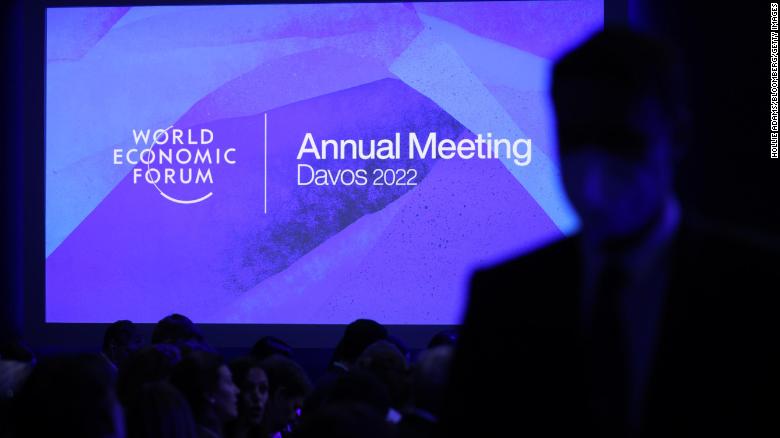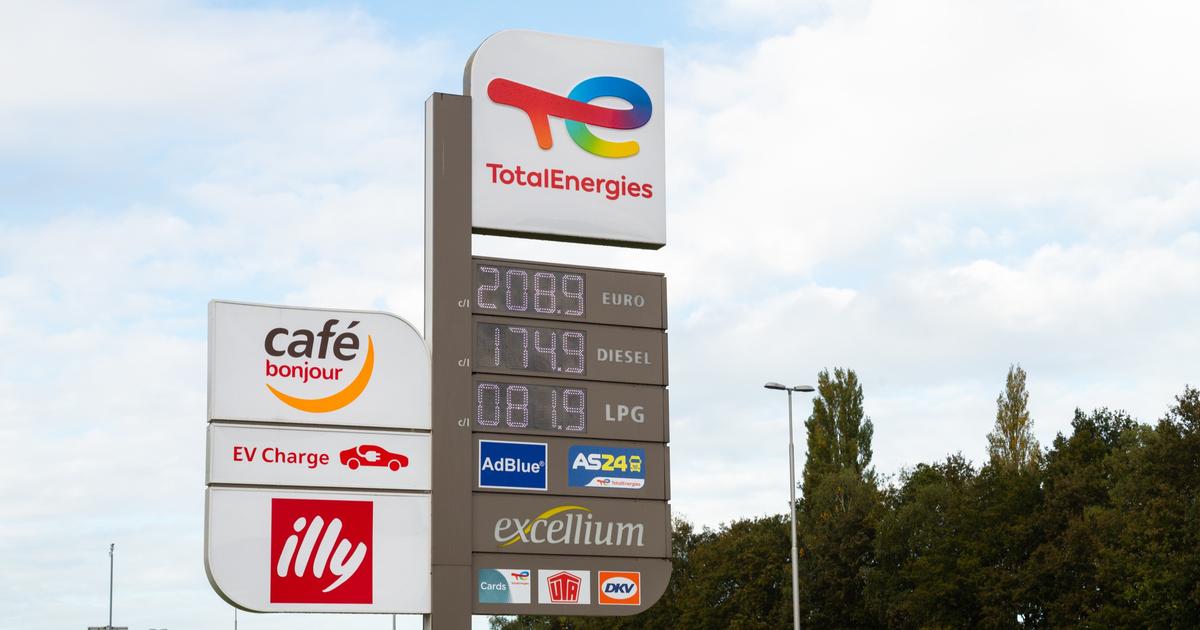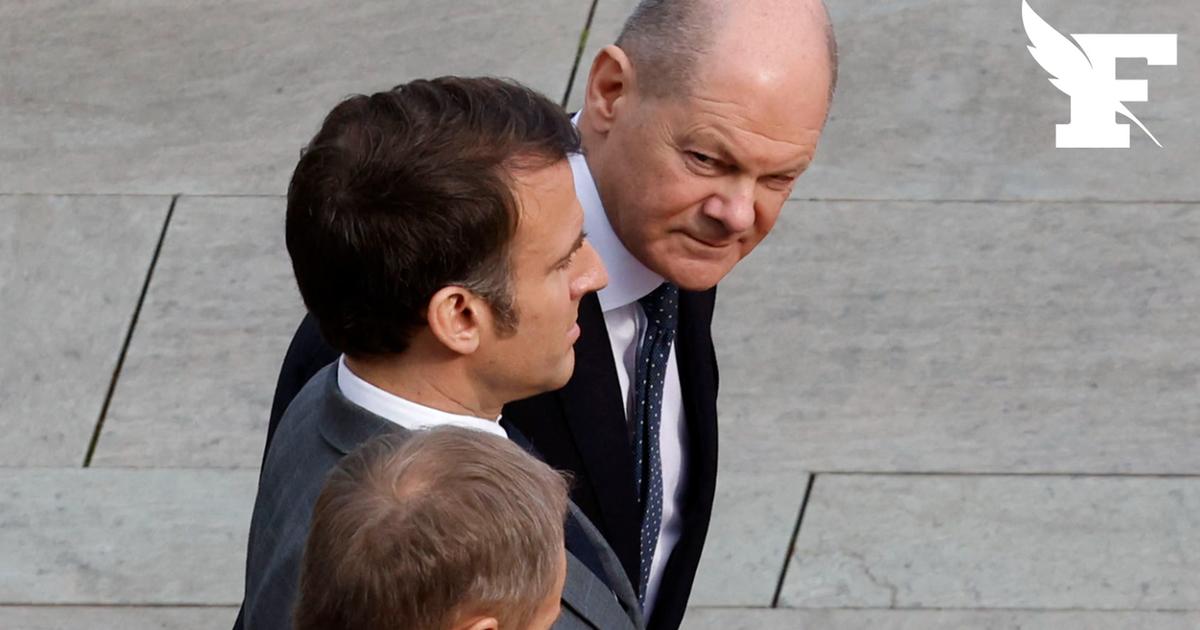Special forces veterans join the fight in Ukraine 3:36
Davos, Switzerland (CNN Business) --
As Ukraine's President Volodymyr Zelensky spoke via video to a packed room at the World Economic Forum in Davos, Switzerland, he thanked the West for its solidarity against Russia.
But he also issued a warning to political leaders and businessmen: do not lose courage.
"I just wish they don't lose this feeling of unity," he said, again calling for maximum pressure on Moscow.
Three months into Russia's invasion of Ukraine, leaders in Europe and the United States stress they remain committed to upholding unprecedented sanctions in a bid to force President Vladimir Putin to withdraw his troops.
But as the cost of food and fuel skyrockets, fueling political protests and public unrest around the world, and increasing the risk of recession, maintaining consensus could prove increasingly difficult.
"I'm very concerned that it could produce a recession in Europe in the determination of Europeans to stand firm and continue to escalate sanctions," Jason Furman, a Harvard professor who was previously President Barack Obama's top economic adviser, told CNN Business.
Europe's united front is already beginning to crack.
Hungarian Prime Minister Viktor Orban, who was not present at Davos, has led dissidents in blocking the European Union's plans for an oil embargo on Russia, an attempt to cut off an important source of income for Moscow.
The goal of finally getting rid of Russian gas could prove even more difficult.
The European Union proposes to ban Russian oil imports, but Hungary says no
In the United States, President Joe Biden and the Democrats are under enormous pressure to show that they are serious about fighting inflation before the November midterm elections, even though most of the factors that cause it, such as gridlock in the supply chain and high consumer demand, are largely out of your control.
advertising
This could complicate efforts to further pressure Russia, despite warnings from billionaire George Soros and others that appeasing Putin would have catastrophic consequences.
Attendees at a session on the third day of the World Economic Forum in Davos, Switzerland, on May 25.
Fuel and food prices skyrocket
In Davos, government and business leaders stressed that they cannot give in to Putin.
They agreed that the response to his annexation of Crimea in 2014, as well as the poisoning of Sergei and Yulia Skripal in Salisbury, England in 2018, was too weak in hindsight.
And the historic Western sanctions against Russia imposed this year may not be enough either.
Russia's economy has taken a hit but is holding up better than expected, bolstered in part by robust oil and gas revenues.
This allowed the central bank to cut interest rates on Thursday.
"We have to stop giving in," Eduard Heger, Prime Minister of Slovakia, said emotionally during a round table discussion.
Giving in to Putin provoked "an aggressive war," he continued.
Soros warned that the invasion of Ukraine could mark the start of World War III, saying Putin had to be defeated "as soon as possible" if the world is to preserve civilization.
George Soros issues warning about Putin's war 1:06
But the economic backdrop could make life difficult for politicians at home.
Annual inflation among the 19 countries that use the euro reached 7.4% in April, an all-time high.
In the United States, inflation stood at 8.3%, and reached 9% in the United Kingdom.
An important factor is the cost of energy.
Energy prices were already on the rise due to a supply-demand imbalance in the aftermath of the pandemic, but have risen further on Europe's efforts to reduce its reliance on Russian energy.
The oil embargo has been held back by landlocked states such as Hungary and the Czech Republic, which say it would take years to transition to other suppliers or sources of energy.
However, an agreement is expected to be reached in the coming weeks.
ANALYSIS |
Europe is running out of time to find alternatives to Russian gas
"The economic situation is definitely tough. I don't think it's going to affect the consensus on oil," said Mujtaba Rahman, managing director for Europe at Eurasia Group, a political risk consultancy.
Still, there will be consequences.
Fears of power shortages have already pushed prices up dramatically.
In the United States, the average price of a gallon of regular gasoline hit a record high of $4.60 on Thursday.
The situation is even worse in Europe.
According to recent data, drivers in the UK pay $8.06 per gallon, and $8.43 per gallon in Germany.
At the same time, food prices are soaring as the war disrupts exports of key commodities such as wheat and sunflower oil, and as some countries, such as India, enact export bans to protect domestic supplies.
In April, food prices in Germany soared 8.6% from a year earlier.
"This is where the impact of the war in Ukraine is becoming more and more visible," Georg Thiel, president of Germany's Federal Statistical Office, said earlier this month.
European Commission President Ursula von der Leyen said this week that "fragile countries and vulnerable populations suffer the most."
She added that the price of bread has risen 70% in Lebanon, and that food shipments from Odessa in Ukraine have been unable to reach Somalia, which is struggling with a devastating drought.
Protests over rising prices have broken out in Peru and led to the ouster of the prime minister in Sri Lanka.
From Pakistan to Peru, skyrocketing food and fuel prices are pushing countries to the brink
Yet even in Europe and the United States, lower-income households have increasingly been forced to choose between "heat and food," which make up a larger proportion of their budgets.
Economists worry that a spending pullback could trigger recessions, especially at a time when central banks are raising interest rates to try to rein in inflation.
"There is a real risk for a lot of people," Oxfam International executive director Gabriela Bucher told CNN Business.
Even in the "rich world," she added, there are people struggling "to meet their basic needs right now."
The UK government acknowledged the problem on Thursday when it announced a windfall tax of $6.3 billion on oil companies to finance payments to people struggling to meet energy bills.
The future of western solidarity
US and European officials, as well as top business officials, say Ukraine's victory is crucial.
The brutal war and humanitarian crisis must come to an end, and democratic values must prevail at what German Chancellor Olaf Scholz called a "turning point" for the world.
"It's hard to see any issue that has brought people together in the West as much as this," David Rubenstein, the billionaire founder of the Carlyle Group, told CNN Business.
"I don't think the incremental increases that can be attributed to this relative to inflation are going to change anybody's mind."
U.S. officials also see taking on Putin as imperative to curb the ambitions of Chinese President Xi Jinping, who they say is closely watching how the situation unfolds.
Why is the case of Taiwan and China not the same as that of Ukraine and Russia?
"Deterrence is a key here," said US Congressman Michael McCaul, the top Republican on the House Foreign Relations committee.
"When Xi looks at what's happening in Ukraine, [he asks]: 'Is it worth it? And we have to convince him that it's not.'
But balancing political and economic concerns will not be easy.
Scholz admitted that "politicians have an important task to attend to" as they juggle the different parts of their mandate in the public eye.
This could become a bigger problem in the event of a major escalation by Russia, Rahman said.
That could trigger stronger calls for an outright ban on Russian natural gas, which made up 45% of Europe's supplies last year.
Much of it travels by pipeline, making it difficult to find alternatives.
A full ban is not on the table right now, though Scholz said Germany is working "flat-out" to end its reliance on Russian gas as soon as possible.
But if seriously discussed, it would be a harder sell to the public than anything the West has proposed so far.
Companies, while showing strong support for Ukraine, are also concerned about the increasing pressure on their business.
Volkswagen CEO Herbert Diess told CNN Business that the full effects of rising raw material costs and inflation won't be apparent for another six to 12 months, creating a "really difficult" operating environment.
"We should get something out of sanctions," he said.
"So far, we're basically going from escalation to escalation and we don't have a choice. So I think sanctions, yes, but then how are we going to end this?"
Former US Secretary of State Henry Kissinger provoked a backlash earlier this week when he appeared to suggest Ukraine should agree to cede much of Donbas and Crimea to Putin.
"Negotiations must start in the next two months before disruptions and tensions are created that will not be easily overcome," Kissinger said.
"Ideally, the dividing line would be a return to the previous status quo."
Zelensky compared Kissinger's comments to the appeasement of Nazi Germany in 1938.
"I don't want to hear the word 'appeasement' again," European Parliament President Roberta Metsola said to applause on Wednesday.
However, the weakening economy and high inflation could weigh on politicians heading home, prompting a warning from NATO Secretary General Jens Stoltenberg.
"Freedom is more important than free trade," Stoltenberg told Davos attendees.
"Protecting our values is more important than financial gain."
Davos ForumWar in Ukraine









/cloudfront-eu-central-1.images.arcpublishing.com/prisa/FRAHECYMHZCK3JVTNPEFVPK6JQ.jpg)